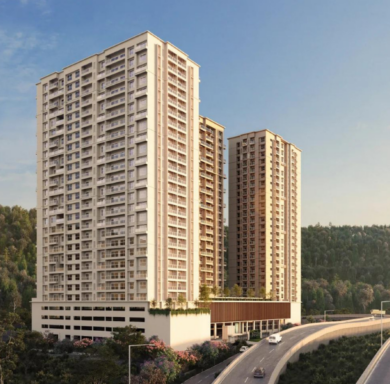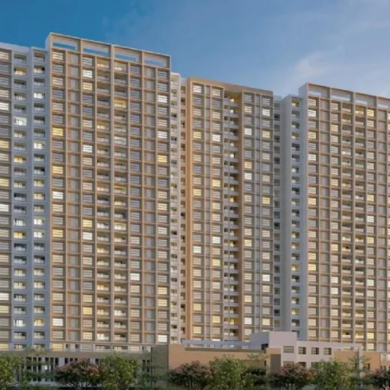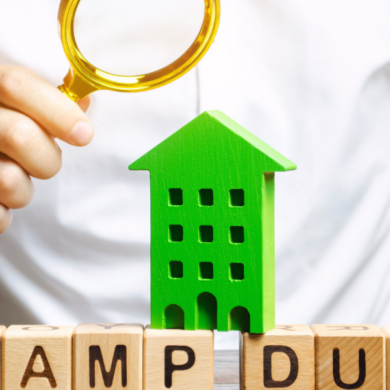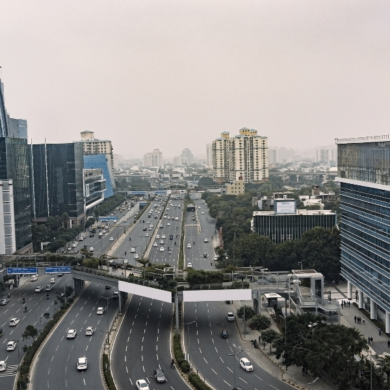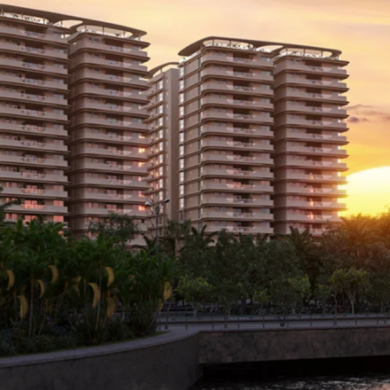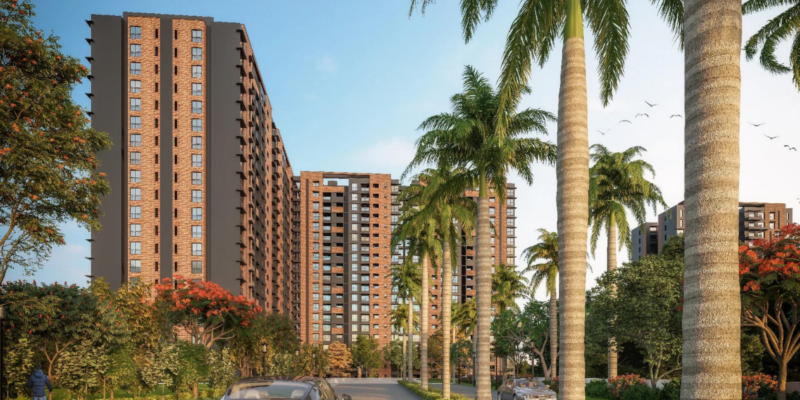
Sustainable living – a term we all are familiar with. But what is sustainable living? Is it living in a mud house, or being self-sufficient in terms of energy and water needs? Does living sustainably require us to shun the comforts modern technology offers? Is it possible to live in an apartment ‘sustainably’, that too in a city like Bangalore? Well, this blog attempts to offer answers to all these questions. After all, sustainable living is the way forward and none of us can turn our back towards it. Read on and find ways to live sustainably in apartments in Bangalore.
Table of Contents
Sustainability – The Need of the Hour
Growing population, rapid urbanisation, depleting resources, and a slew of problems that stem from these and endanger our very existence on planet earth. Right now, climate change is a growing concern for people across the world. Countries are busy finding ways to reduce their carbon footprint. Conscious individuals have been practicing the same and getting vocal about it too. Globally, countries sign pacts to reduce their carbon footprint and thus control global warming and the subsequent climate change, which, if continued unabated, could severely affect livelihoods across the world. India was the third largest emitter of carbon dioxide in 2020, just behind China and the US. However, India is taking measures to control emissions as part of its stated goals to reduce carbon footprint drastically. The key goals are as follows:
Generate 50% of electricity from non-fossil fuel sources by 2030.
Reduce carbon emissions by 1 billion tonnes; in 2018, India emitted 3.3 billion tonnes of greenhouse gases and by 2030, the figure is expected to touch 4 billion tonnes a year.
Reduce emissions intensity of India’s GDP by 45% by 2030 i.e., to reduce the emission of greenhouse gas per unit of economic activity.
All these are intended to create an ecosystem for sustainable living. Since family is the basic unit of society and individuals constitute each family, at a familial/individual level, what we choose to do or not to do can propel or disrupt our collective sustainability goals. If you are living in an apartment in Bangalore, you will find the following tips useful.
What is Sustainable Living?
To put it simply, sustainable living is the practice of living consciously with the aim of limiting the use of natural resources. While living in a mud house is indeed a surefire way to live sustainably, in a city like Bangalore, it is not practical. There is also a misconception among people that to live sustainably, one must turn their back towards the comforts modern life offers. In fact, it is possible to live sustainably in apartments in Bangalore. Let’s see how.
Sustainable Living in Apartments in Bangalore
Using resources wisely is the core of sustainable living. An apartment is a classic example of using the land – an important resource – effectively, thanks to vertical development. Let’s look at each of the aspects of sustainability while living in apartments in Bangalore.
Energy Conservation
Our fossil fuel resources are depleting. The world over, the focus now is on generating energy from renewable sources. Attaining energy efficiency at home goes a long way, as it helps in reducing energy consumption overall. You can conserve energy while living in an apartment in Bangalore by adopting the following methods.
Solar Panels
As we have already seen, one of the sustainability goals of India is to generate 50% of the country’s electricity requirements from non-fossil fuel resources. Harnessing solar power is critical in achieving this. Installing solar panels in apartments in Bangalore and using them to generate electricity is a great way to ensure that you use clean and green energy, and hence practise sustainable living.
Energy-efficient Lighting
It is now common knowledge that incandescent light bulbs consume more energy, and they are being phased out. By using fluorescent lamps, CFL lamps, and LED lamps in your apartment in Bangalore, you are not only meeting your sustainability goals, but also reducing your electricity bills considerably.
Energy-efficient Appliances
There was a time when both manufacturers and consumers did not worry much about resources. A classic example is the petrol-guzzling cars of the olden days. Likewise, appliances such as air conditioners or refrigerators used to consume a lot of electricity in the past. Today, you can choose an appliance based on its energy efficiency – if the appliance you are buying has five stars, it means you have chosen one that assures maximum energy efficiency. The lower the number of stars, the lower its energy efficiency. Make sure that you always buy one with five-star rating for your apartment in Bangalore. This way, you can ensure the energy efficiency of your appliances.
Motion Sensors and Timers
A great way to save energy, motion sensors, as the name suggests senses movement of people and accordingly switch on or switch off a device. For instance, if you have installed motion sensors in your apartment in Bangalore, when you enter a room, the light will be automatically switched on. Timers, on the other hand, are electrical circuits with an integrated clock. Based on your need, you can set the timer and accordingly the lights will be either switched on or switched off. Both motion sensors and timers are particularly useful in common areas and help in saving energy in a big way.
Regular Maintenance of Air Conditioners
As the temperature levels soar higher and higher, even households in a city like Bangalore, which was once famous for its salubrious climate throughout the year, are seeing an ever-increasing demand for air conditioners. As an appliance that is constantly in use, air conditioners require periodical maintenance. This will ensure their longevity, superior performance, and better energy efficiency. For example, by simply replacing a clogged filter of your air conditioner in your apartment in Bangalore, you can lower the energy consumption of your air conditioner by up to 15%.
Water Conservation
Water – the very source of life. One of the biggest concerns across the world is the dipping ground water levels and the depleting source of freshwater. Using water judiciously and responsibly at your apartment in Bangalore will help in preserving the precious resource.
Low-flow Showerheads and Faucets
When you open your shower or faucet, does water gush forth? If so, replacing them with low-flow showerheads and faucets in your apartment in Bangalore will help in saving huge amounts of water.
Fix Leaky Pipes and Faucets
Imagine an apartment complex with a leaky network of pipes and dripping faucets. Each day, the complex will lose copious amounts of water. If your apartment in Bangalore has leaky pipes and taps, changing them will help you save thousands of litres of water annually.
Use a Dual-flush System
With a dual-flush system toilet in your apartment in Bangalore, each time you flush you can save water. Designed on the simple insight that liquid waste takes less water to flush than solid waste, dual-flush toilets are quite common today.
Water-efficient Landscaping
As the name suggests, water-efficient landscaping uses less water – drip irrigation, for instance – and chooses low water use native plants; the design will also be suitable to local conditions.
Recycling Greywater
Greywater, which is basically all wastewater generated at home, can be recycled at a sewage treatment plant. The recycled grey water from your apartment in Bangalore is used for gardening, flushing, etc.
Waste Management
An issue that plagues almost all the cities in the world, waste management, if not done effectively, can spell disaster. Advocating for a proper waste management system and setting up the same in your apartment in Bangalore will be beneficial to your sustainability goals.
Set up a Composting System
Setting up a composting system of your own is quite easy as composting units are readily available and you can get the unit fixed easily. By segregating and treating waste generated at your apartment in Bangalore, you can ensure that the amount of waste you send to landfills – an environmental issue – is minimal.
Recycling
Segregating solid waste such as plastic, glass, and paper generated at your apartment in Bangalore and handing them over to the dry waste collectors is a great way to minimise environmental impact.
Proper Disposal of Electronic Waste
Electronic waste or e-waste is an environmental hazard, mostly because of irresponsible disposal. Make sure that you always handover your e-waste to the designated collection centres.
Reduce Food Waste
Many resources such as land, water, and energy are used to grow food. Obviously, wasting food is to waste these resources, which are precious.
Avoid Single-use Plastic
Worldwide, one of the major environmental concerns is the use of single-use plastic. Each day, billions of plastic straws and other items made of single-use plastic end up on land as well as waterbodies, causing serious environmental issues. Saying no to single-use plastic covers and other materials and using eco-friendly alternatives will help in reducing the impact in a major way.
Sustainable Transportation
In Bangalore, each day, millions of vehicles ply on the road. Emissions from these vehicles contribute to increasing pollution levels and poor quality of air. By switching to sustainable modes of transportation, you can do your bit towards sustainable living.
Reduce Carbon Footprint
Do you prefer to drive your car or ride your two-wheeler even if your destination is at a walkable distance? If so, you are simply increasing your carbon footprint. You can reduce it by choosing to walk.
Walk or Cycle
Besides its obvious health benefits, walking and cycling are great for the environment. When you choose to walk or cycle to office, you don’t leave any pollutants behind.
Use Public Transport
Choosing mass modes of transportation such as bus, metro, and train are a great way to reduce environmental impact. The reason is simple – people who fit into 100 cars can fit into a metro train – which means lesser emission and a fillip to sustainable living.
Reduce Car Usage
Do you have a colleague or colleagues who live in the same apartment complex? If yes, you can opt for carpooling. This way, you can commute comfortably and lessen your carbon footprint. You can also use ride-sharing apps to find people from your locality who travel the same route as you.
Switch to Hybrid or Electric Cars
With growing awareness about the environmental impact of fossil fuel vehicles, and stringent emission norms, manufacturers are giving more prominence to hybrid vehicles and electric vehicles. While the former uses both fossil fuel and electric motor, the fuel consumed is quite less in comparison with normal vehicles. In the case of electric vehicles, they emit no toxic gases and hence, are environment-friendly.
Community Initiatives
One of the most beautiful aspects of living in an apartment is the opportunity to spend time with likeminded people. From a sustainability point of view too, living in an apartment has many benefits.
Set up a Community Garden
Muddying your hands is probably the best way to cleanse your mind. Setting up a community garden will help you grow your own vegetables and thus lessen the environmental impact of food growing and transportation.
Share Resources with Neighbours
Choosing to live in an apartment itself is an act of sharing – you share water, common space, amenities and a lot more. In addition to this, you can choose to donate items which are no longer useful for you. For instance, if you have a tricycle at home and your child has outgrown it, you can give it to a neighbour who has a young one at home. Likewise, you can make a list of things which you would like to share. This way, you can develop a camaraderie with your neighbours while living in an apartment in Bangalore and help in avoiding mindless consumption.
Community-wide Recycling Programmes
One of the core practices of sustainable living is recycling. You, along with your neighbours, can organise community-wide recycling programmes. In these programmes, you can encourage people to reuse materials and thus contribute towards sustainable living in an apartment.
Organise Carpooling and Encourage to Take up Public Transport
Be it day-to-day commuting to work or the occasional outing on weekends, you can find people to carpool with. Also, if the vicinity of your apartment in Bangalore is ably connected by public transport, you can encourage people to take it up. These measures, though seemingly small, will help in a big way in tackling the environmental issues that matter the most.
Host Educational Events and Seminars
Creating awareness is critical in matters related to the environment. Even among educated people, there is a lack of awareness about sustainable living and the environment-friendly measures they can take to lessen their carbon footprint. Organising educational events and seminars at your apartment in Bangalore will benefit the cause of sustainable living.
SOBHA Ltd. – Leading the Way in Sustainability Practices
For over 27 years, SOBHA Ltd. has been creating a legacy built on quality and trust. Present across 27 cities in 14 states, SOBHA is headquartered in Bangalore. Like its renowned quality standards, SOBHA is also known for its sustainability practices.
The advanced precast construction methodologies SOBHA rely on keep sustainability at the core. The advantages include reduced consumption of energy, water, and building materials. Besides these, each SOBHA project has measures to preserve water through recycling and rainwater harvesting. STP treated water is used for gardening and flushing.
Lighting for common areas is powered by solar energy and motion sensors and timers are extensively used to make sure that energy is not wasted. When it comes to waste management, SOBHA adopts the latest and best practices in accordance with global standards.
Winning Awards for Sustainability Practices
Over the years, various SOBHA apartments across Bangalore have bagged awards for their commendable endeavours on the sustainability front. Let’s take a look at a few of them and what they did:
SOBHA Palladian, Marathahalli
The 179 families that live in the apartment complex don’t depend on BESCOM, the board responsible for supplying electricity in Bangalore, for electricity requirements in the common areas. All of it comes through the solar panels whose capacity is approximately 350 kW.
SOBHA Chrysanthemum, Narayanapura
Home to around 200 families, the apartment complex doesn’t have a BWSSB water connection, nor does it rely on tankers for water requirements. The residents of the complex harvest around two lakh litres of rainwater annually, and they even have surplus water.
Both SOBHA Palladian and SOBHA Chrysanthemum were accorded the Hasiru Apartment Award for their towering achievements in the area of sustainability.
This article has been an attempt to find an answer to the question, is it possible to live sustainably in an apartment in Bangalore? The answer is in affirmative, and we have seen how to do it. When you live sustainably, you are being kind to your environment and Mother Nature as a whole. What’s more, it helps you save money. With a simple act of sustainability practice such as recycling or switching to renewable energy, we are contributing to the environment and paving the way towards a more sustainable future.
FAQ’s
1. How can I live sustainably in my apartment?
Sustainable living in an apartment is easily achievable. By ensuring that you shun single-use plastic, use locally sourced food products, fix your leaking pipe and faucets, recycle, etc., you can ensure that you live sustainably while living in an apartment.
2. What are three examples of sustainable living?
Sustainable living involves conscious living with the aim of lessening your carbon footprint. If you are making an effort to harvest rainwater, that is an act of sustainable living. Relying on solar energy for energy requirements is another. Yet another big way in which you can practice sustainable living is to opt for public transport instead of taking your car.
3. How can I live sustainably?
To live sustainably, you need to make conscious choices. For instance, walk to the supermarket in the neighbourhood instead of driving. Carry your own bottle of water around rather than buying bottled water every now and then. Stop using plastic straws, which are a huge environmental hazard. In addition to these, there are so many ways in which you can practise sustainable living.
4. What is considered sustainable living?
At the core of sustainable living is the fair utilisation of the earth’s resources. This can be achieved by minimising waste, careful use of natural resources, using locally grown and organic products, and taking measures to protect the environment.
5. What are seven ways to live more sustainably?
Sustainable living is a broad term and there are innumerable ways to practise it. However, for the sake of ease, let’s look at seven ways in which you can live more sustainably. 1. Save electricity and water 2. Say no to plastic 3. Walk whenever you can 4. Stop wasting food and start composting 5. Switch to plant-based diet 6. Reuse, recycle, repurpose 7. Use clothes which are made in an eco-friendly way
6. How to live 100% sustainably?
When an individual has a neutral or positive impact on the planet, it can be considered as 100% sustainable living. To elucidate further, it simply means that whatever is being taken from the planet should be given back. For example, if a tree is being cut, planting a sapling in its place makes it neutral.
7. What are the four pillars of sustainable living?
Though the topic of sustainability is often talked about in terms of the environmental point of view, the term refers to four distinct areas, namely human, social, economic, and environmental. Human sustainability is chiefly about providing access to education and healthcare to people. Social sustainability has its focus on improving social quality and is about the importance of human relationships. Economic sustainability aims to improve social equality and standard of living. Environment sustainability, on the other hand, aims to improve human welfare by protecting the environment through the judicious use of natural resources.
8. What are the five R’s of sustainable living?
Sustainable living involves living consciously. The five R’s of sustainable living are as follows: 1) Refuse: By refusing to buy non-recyclable products you can minimise waste. 2) Reduce: Carrying a cloth bag to the vegetable vendor will help you reduce plastic waste at home. 3) Reuse: Getting food parcels in your own containers and using clothes towel in the kitchen are examples of reuse. 4) Repurpose: Use items which are normally considered for throwing in trash. For instance, using the glass beverage bottle as a flower vase. 5) Recycling: Choose to buy items that are recyclable.
9. How can I start living sustainably in India?
By keeping the five R’s mentioned above in mind, you can start living sustainably in India. Promise yourself that you have a zero or minimal wastage policy. Buy products which are eco-friendly and choose to walk or cycle to short distances are some of the few ways to start living sustainably in India.
10. What is a sustainable household?
The first step towards making your home a sustainable household is to live consciously. When you build a home, choose materials that are locally sourced. For example, choose red oxide or locally made tiles instead of imported Italian marble. Make provision to optimise water and electricity usage. Reduce waste and buy materials that are recyclable. If your home meets these criteria, it can be considered as a sustainable household.

